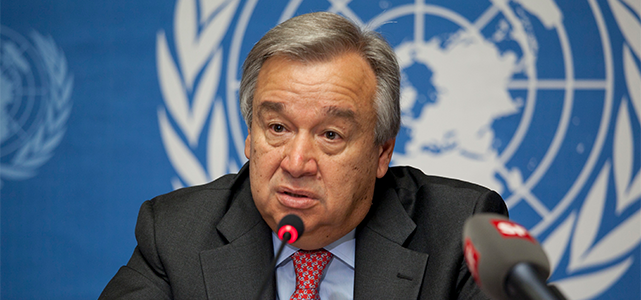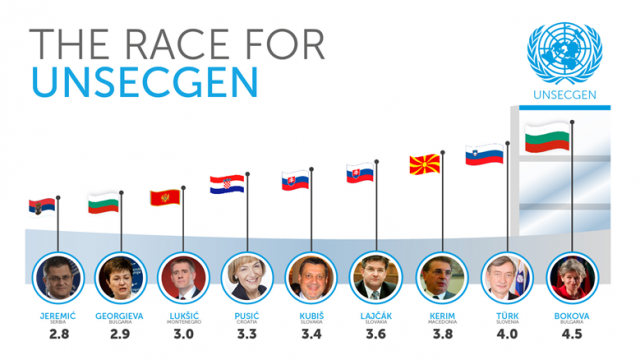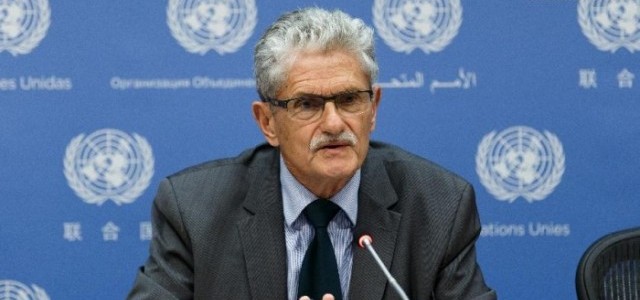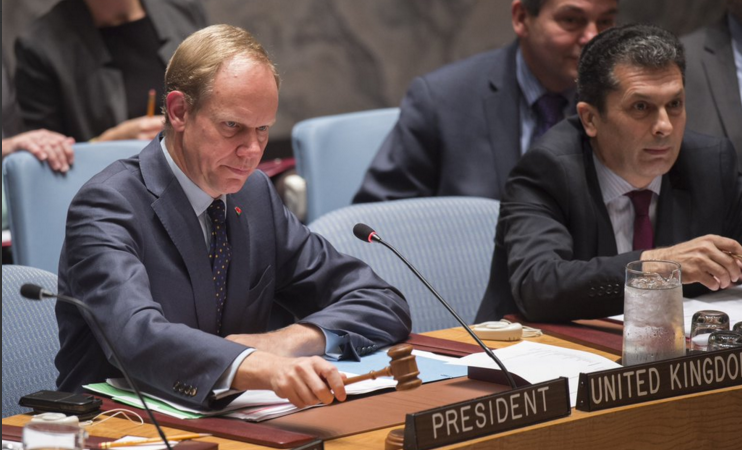UPDATE: At the General Assembly this morning, 6 December, Jordan won its election with 178 out of a possible 193 votes, crossing the necessary two-thirds requirement to be seated at the UN Security Council on 1 January 2014. Jordan was endorsed by the Arab Group and Asia-Pacific Group for this seat, ensuring its election to this unopposed seat. Analysis follows.
–
On Friday, 6 December at 10 AM, the General Assembly will hold an extraordinary election to fill the Security Council seat rejected by Saudi Arabia. Because only Jordan has submitted its name for candidacy, the election is a shoe-in, and Jordan should easily pass the two-thirds threshold required to fill the seat Pakistan vacates at the end of the year.
Jordan has a strong history in international affairs and would be a solid candidate even if the election were contested; whether the election will be good for Jordan is another question. However, legal questions about the operations of the Security Council with just 14 members require that this election be the final step in the process of filling this seat.
Unprecedented Vote
This is an unprecedented election dealing with an unprecedented situation. When the biennial election for this slate of seats was held, Saudi Arabia easily won its race because the election was unopposed; four other candidates in three other regions similarly won clean slate elections. But the day after that election, the Saudi Foreign Ministry rejected the seat due to the Security Council’s alleged repeated failures in the Middle East with respect to the Israel-Palestine conflict, regional nuclear proliferation, and Syria.
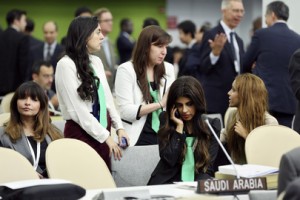
UN observers believe that this was the first time a state had turned down a seat to which it was elected; in the nearest analogue, the USSR had boycotted its (non-elected) seat in 1950, which backfired when it was unable to veto actions which led to the Korean war.
While the Saudi decision was baffling, and the implications complex, once Saudi Arabia formally declined the seat a special election was scheduled to place a different member state at the council.
Limiting nature of Security Council elections
The design of Security Council elections limits who might seek to replace Saudi Arabia. The Security Council is divided into permanent (veto-bearing) and non-permanent, or elected, members, and the Non-Permanent members are divided into five regions from which those members are elected: the African Group (three seats), the Asian and Pacific Group (two seats), the Western European and Others Group (two seats), the Group of Latin American and Caribbean States (GRULAC, two seats), and the Eastern European Group (one seat).
Additionally, the General Assembly has traditionally agreed that one seat on the Security Council should be held by an Arab state; that seat rotates between an Asian state and a North African state every two years. With the expiration of Morocco’s term at the end of 2013, the Arab Group seat would be held by an Asian state for the 2014-2015 term; with Saudi Arabia absconding, only a few states would make sense if the tradition were to hold. Lebanon (2010-2011) and Qatar (2006-2007) had recently held the Asian Arab Seat at the Security Council; Kuwait and Yemen are preparing for the 2017 election and Bahrain has indicated interest in the 2021 opening – all five of these states could make sense as replacements for Saudi Arabia as they have recently or are currently applying diplomatic resources toward the Security Council and its unique working methods.
When Saudi Arabia formally declined its seat on November 12, though, none of the states with recent Security Council experience or preparations for coming elections announced their candidacy; instead, Jordan stepped to the plate.

Jordan’s role in international security
Concerns for Jordan with respect to Security Council membership include its interests in Middle East politics, its competencies as an international actor, and domestic politics. Jordan is among the countries hardest hit by the refugee crisis from the Syrian civil war. The Zaatari refugee camp has grown to become one of the largest in the world, and refugees have had great trouble integrating. The Jordanian economy and political institutions at the national and local levels are straining under the weight of over 560,000 refugees, who represent nearly 10% of the people in Jordan. Jordan has been a key player in negotiations between Israel and the Palestinians and has a key stake in ongoing negotiations between the Security Council and Iran.
Jordan has long been an engaged member of the United Nations. As of 2013, Jordan is the eighth-largest contributor of peacekeeping troops and police to operations around the world. The Kingdom has held a seat on the Security Council twice before, in 1965-66 and 1982-83. And Amman has hosted economic summits, been an important regional diplomatic center, and facilitated peace talks between the Israelis and Palestinians. To ensure it has time to fully meet its obligations as a member of the Security Council, Jordan withdrew its candidacy for a seat on the Human Rights Council. In short, Jordan seems to meet the sorts of informal qualifications that voters take into account when voting for Security Council membership – it’s a responsible actor on the international stage.
Domestic Blowback?
Whether Security Council membership turns out to be good for Jordan is another matter. Recent social science research has shown that states on the Security Council receive 59% more aid from the US and 8% more aid from UNICEF (over which the US has historically exerted control). Paradoxically, Security Council membership tends to result in less economic growth, less democracy, and less press freedom, according to another study, and we can see an increased probability of civil war in some cases. Reformers in the Kingdom may find the findings from these studies worrisome. Since the early days of the Arab Spring, Jordanians have been frustrated by a stagnant economy, and perceptions of political corruption, undemocratic institutions, and perceived lack of government reform has led to increased activism and protests. The Syrian refugee crisis only increases pressure on the Jordanian government, a constitutional monarchy heavily composed of appointees. The biggest potential worry is that in the long-run, Security Council membership will make Jordan less stable, and with its domestic problems and refugee crisis long-simmering, the potential for its problems, or the problems it has contained from Syria, Iraq, or Palestine, spiraling out into the rest of the Middle East like so many dominoes, is concerning indeed.
The Election
Unfortunately, because this election is a clean slate, there are no other options. Again, while we had multiple other candidates who could potentially have been available to step up for the seat, such as Lebanan, Qatar, Kuwait, Yemen, and Bahrain, none of those candidates decided to step up. Instead, voters are faced with a binary choice: elect Jordan, or elect no one. This choice is fundamentally undemocratic, and the collusion between members of the various groups to decide who will run in each election, while it helps them coordinate their diplomatic resources, robs voters of the option to decide which state will be best able to serve. It is quite possible an Asian Arab state other than Jordan has both the diplomatic resources and domestic stability to handle the responsibilities of Security Council membership right now; we’ll never know – the General Assembly was not presented with those candidates.
Instead, the General Assembly cannot worry too much about Jordan’s domestic politics at this late date. When Saudi Arabia initially turned down the seat, questions were raised about whether the Security Council would be able to meet without all 15 members elected and present. That situation has come up before, but it was messy and should be avoided: in the 1979 election for the 1980-1981 GRULAC seat, Colombia and Cuba were pitted in an extended election that ended up with inconclusive results and no winner was elected by 1 January 1980. The UN Legal Counsel determined that decisions made from an understaffed council could be enforced, and the Council did in fact meet four times until Mexico was eventually seated on 7 January.
But imagine if this situation were to occur again: Jordan fails to meet the threshold to be elected, and 14 members sit the council for a short period in 2014. What if an important resolution on Syria, the Central African Republic, or any of a number of other issues, is voted on during this period, and one of the parties to that conflict declares that their legal obligations under the UN Charter do not apply because a 14-member Security Council is not, in fact, a UN Security Council? Can we afford such a potential for doubt in the work of the Security Council, even if a reassuring precedent was set 33 years ago? The fact that this is such a bad idea is so obvious to the permanent representatives at the UN that Jordan will undoubtedly sail through the election on Friday.
Luckily, Jordan’s history in international politics is reassuring, and the international community has every reason to believe it will be a responsible steward of its duties on the Security Council. How its membership on the Council affects Jordanian domestic politics, and, in turn, the broader stability of the Middle East, remains to be seen. But given that we are already approaching the date on which a new member of the Security Council would be seated, Jordan passes the threshold to be elected and therefore should be. It is disappointing that they are running in a clean slate election and that the Jordanian people could potentially suffer as a result of their government’s attempts to take a leadership role in international affairs. No election is easy. It’s just that this election is more complicated than the overwhelming vote in favor of Jordan on Friday will make it seem.


